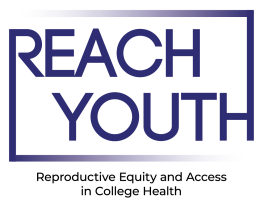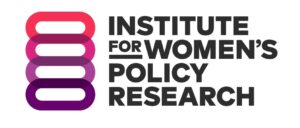REACH Youth:
Reproductive Equity and Access in College Health
Can an intervention in community colleges support young people’s reproductive health and gender equity as they pursue higher education?
What are the goals of this study?
We are conducting a cluster randomized trial with our partners at University of Texas at Austin among community college students, ages 18-25, to test an intervention to increase contraceptive access and equity.
This research is guided by a social determinants of health framework, and we seek innovative solutions to support young people, many of whom face educational disadvantage, economic hardship, racism, and discrimination.
The intervention seeks to increase health and gender equity for these young people in a crucial stage in their life, as they move from adolescence to young adulthood.

Don’t miss an update
This study is actively in progress. Sign up for our newsletter to be notified as new updates and findings are released.
What populations are included?
- 2,086 students have been recruited from community college sites in California and Texas.
- Participants were eligible if they were aged 18–25, assigned female at birth, spoke English, sexually active, and not desiring pregnancy.
What are the study methods?
The multiple-component intervention includes bringing together a network of surrounding community clinics to train providers in high-quality youth-friendly contraceptive care, as well as student education and a digital locator with information on local services.
Participants complete surveys at baseline, immediately after receiving education, every 3 months for 1 year, and every 6 months up to 5 years of follow-up for reproductive health, educational, and economic outcomes.
In December 2021, we added a Reproductive Rights module to collect in-depth information on changes in youth reproductive autonomy and health outcomes.
How is the community involved in this research?
We conducted interviews with students, staff, and faculty at participating colleges and also developed a Community Advisory Board (CAB) and Youth Advisory Board (YAB) to integrate community feedback into the research process.
Our CAB members represent state and non-profit organizations working to enhance the well-being of community college students, including reproductive justice and youth advocacy groups. Our YAB members represent current or former community college students who are interested in contributing to knowledge and advocacy in youth health.
Selected publications
- Mental Health Distress and Delayed Contraception Among Older Adolescents and Young Adults (2024)
- Use of Telemedicine to Obtain Contraception Among Young Adults: Inequities by Health Insurance (2024)
- Concern that contraception affects future fertility: How common is this concern among young people and does it stop them from using contraception? (2023)
- Use of preferred contraceptive method among young adults in Texas and California: A comparison by state and insurance coverage (2023)
- Educational Intervention Among Adolescents and Young Adults on Emergency Contraception Options (2023)
- Perceived Access to Contraception via Telemedicine Among Young Adults: Inequities by Food and Housing Insecurity (2023)
- An Educational Intervention to Raise Awareness of Contraceptive Options Among Young People (2022)
- Concerns About the Cost of Contraception Among Young Women Attending Community College (2021)
- Pregnancy Intentions, Contraceptive Knowledge And Educational Aspirations Among Community College Students (2018)
Select conference presentations
- Association of discrimination experiences with concerns about accessing contraceptive care among community college students in Texas and California
- The impact of state policy environment on contraceptive access: A comparison of community college students in California and Texas
- Food and housing insecurity are related to impeded contraceptive access due to COVID-19 among young people
- Depression, anxiety and stress among community college students during the COVID-19 pandemic and stalled educational progress




